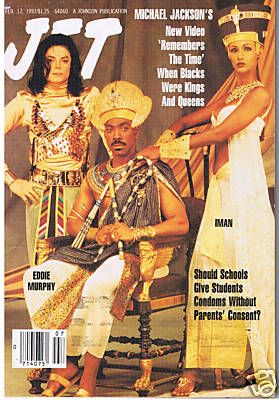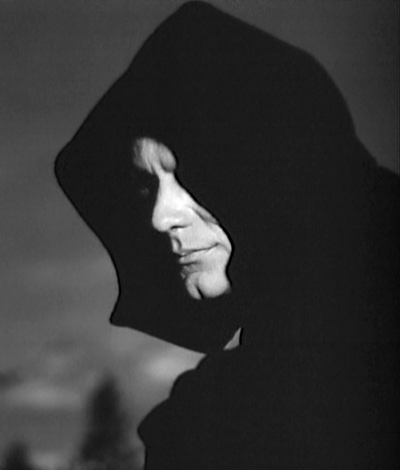
The Blackout Defense is soon to be a staple of defense attorneys everywhere, and will be coming to a courtroom near you soon. In Black Run America, criminality is but the logical outcome of years of pent-up aggression to an unjust system that mandated the persecution of Black people.
In London, England murder was once a rarity, but now a permanent fixture of life in the capital of the United Kingdom. The culprits aren’t the sons and daughters of Albion, though. Perhaps the Blackout Defense will be exported to England to help those unfairly indicted once they reach a criminal trial.
Donnell Buckner was just a mild-mannered Black guy who was traversing his kitchen with the final destination being his refrigerator and a plate of cold fried chicken. What happened next is still in dispute, though what is established is that Mr. Buckner never had the opportunity to consume the fried chicken:
The killing happened in an instant, according to Donnell Buckner: three, maybe four shots fired in a time warp forged by a momentary loss of consciousness.“The Blackout Defense” – we shall keep a watchful eye on the proceedings of Mr. Buckner’s trial, for the legal precedent could be set with his case that forever exonerates future criminals from facing justice for their crimes. Already, we have seen one such intriguing
One moment he argued with his estranged wife, Buckner testified last week, the next she lay dying - blood on the walls of their Lehigh Street, Wilkes-Barre home and a .357 Magnum in his hand.
"I panicked and I ran," Buckner said, underscoring his contention that he blacked out just before last spring's shooting and never intended to harm his wife, Kewaii Rogers-Buckner.
Buckner's claim is a focal point of his defense and, according to psychiatric and legal experts, could mean the difference between guilt and innocence or 20 years in prison and a life sentence.
Attorney Elizabeth Kelley, of Cleveland, Ohio, said a "blackout" defense could insulate a defendant like Buckner from questions of pre-meditation and intent, undermining a prosecutor's ability to secure a first-degree murder conviction and a life sentence or the death penalty.
"Most often it's successful in terms of mitigation," Kelley said. "You can not defend the indefensible, you have to acknowledge that there was a crime, that there was a victim.
By the same token, you have to acknowledge before the court that your client did what he or she did only because they functioned differently than other normal people."
Buckner, 35, faces a mandatory life sentence if a Luzerne County judge convicts him of premeditated, first-degree murder.
He faces 20 to 40 years in prison if the judge, Tina Polachek Gartley, convicts him of third-degree murder. The trial is scheduled to resume today, with testimony from Dr. John O'Brien, a Philadelphia psychiatrist who examined Buckner for prosecutors, and closing arguments.
Gartley, who is sitting in place of a jury, could begin deliberating her verdict by mid-afternoon. Buckner's attorneys, William Ruzzo and Mark Singer, and the prosecutors, Ferentino and Frank McCabe, are under an order from Gartley not to make statements to the media and were unable to comment for this story.
Dr. Richard Fischbein, a psychiatrist who evaluated Buckner for his attorneys, said Buckner had been diagnosed with bipolar disorder but never reported blacking out until after the killing. Blackouts, Fischbein testified, are not usually associated with bipolar disorder.
Prosecutors are skeptical of Buckner's blackout claim and the assistant district attorney who cross-examined him, Jarrett Ferentino, attempted several times to bridge his memory gap. "Who shot your wife?" Ferentino asked.
"That's what happened that night," Buckner responded. "You did it," Ferentino said, incredulous at Buckner's supposed blackout. "You shot her not once, not twice - three times. You don't remember her pleading for her life, that her last words were 'No, Smokey, stop!'?" "No, I don't," Buckner said. Stephen Dinwiddie, a forensic psychiatrist and professor at the University of Chicago, said blackouts like the one Buckner described are possible, but not necessarily linked to any specific psychiatric condition.
"It's very common for murder defendants to report amnesia for some or all parts of the murder," Dinwiddie said. "It's very difficult to tell: is this completely legitimate? Is the defendant not telling the truth about his memory? Or is it something in the middle?"
Buckner's supposed blackout could have been the loss of consciousness at the time of the incident, the path Bucker said his brain took, or a later loss of memory of the event because of head trauma or the excessive use of drugs or alcohol.
"You have to make the distinction between memory and awareness," Dinwiddie said. "The more complex the behavior, the more it looks like it's goal directed, the less plausible any argument that there was no awareness at the time is going to be."
Rogers-Buckner obtained an emergency protection-from-abuse order four days before the shooting, prohibiting Buckner from having contact with her or entering their home. Buckner claimed he was not aware of the protection-from-abuse order when he entered the home, saying Rogers-Buckner invited him over to see their 9-year-old son.
Buckner said he entered the home through a back door and, before seeing his son, grabbed his .357 Magnum from a shelf behind a washing machine. He claimed he had heard investigators had obtained a search warrant for the home.
Buckner said he went to the refrigerator, pulled out leftover fried chicken, put it on a plate and into the microwave. As the food cooked, Buckner's son walked into the kitchen.
The boy smelled the chicken and wanted something to eat, Buckner said. Rogers-Buckner wanted the boy to go back to bed, Buckner said. The boy returned to bed and Buckner said he and his wife argued.
Then, he said, he blacked out. Buckner's stepdaughter testified last week that she heard her mother pleading for Buckner to stop after Buckner fired the first gunshot. The girl recalled running downstairs after the third shot and, from the edge of the kitchen, seeing Buckner standing over her mother in the adjacent living room.
"I think he's trying to put the pieces together," Fischbein, the defense psychiatrist, said. "Why it happened. How it happened. He takes responsibility for what happened, but he doesn't know how it happened."
Though, fried chicken is once again seen as the catalyst for a harrowing scene that is being replicated all across America, confirming that this most disconcerting drama is becoming an alarming trend across the nation thanks to a fowl delicacy.
In France recently, a Black defendant attempted to utilize the burgeoning Righteous Black Anger defense for the crimes of raping numerous white women.
Well, criminals in America will soon embrace The Blackout Defense to ensure their absolution, though some could claim a Blackout is already occurring regarding criminal reporting.
The sins of the past come to haunt those in the present, even if those supplying the justice claim Blackout in their defense.
Sadly the color of crime is becoming more obvious by the day, but the efficacy of The Blackout Defense could make the new judges presiding over cases in America think twice before sentencing commences.







